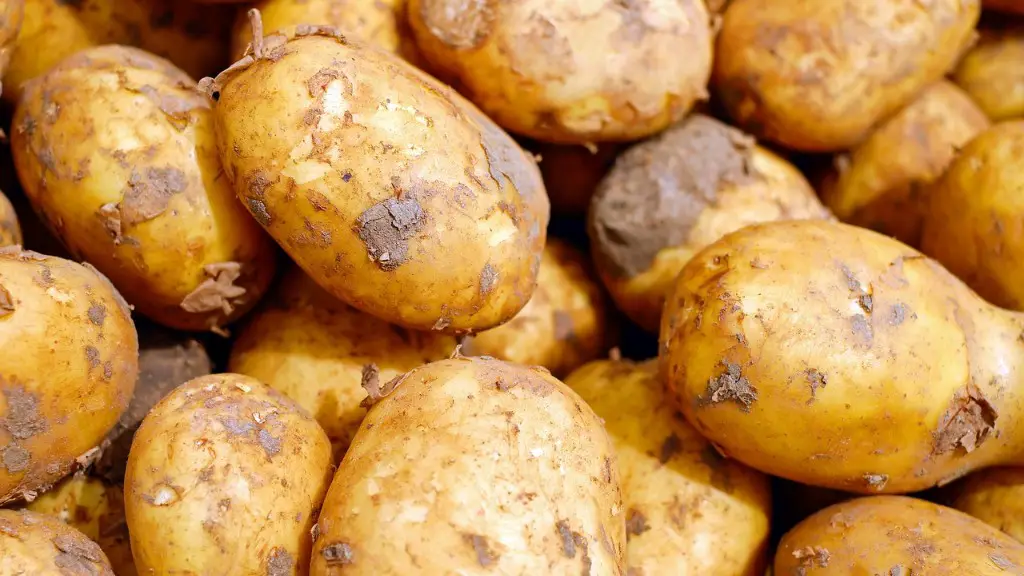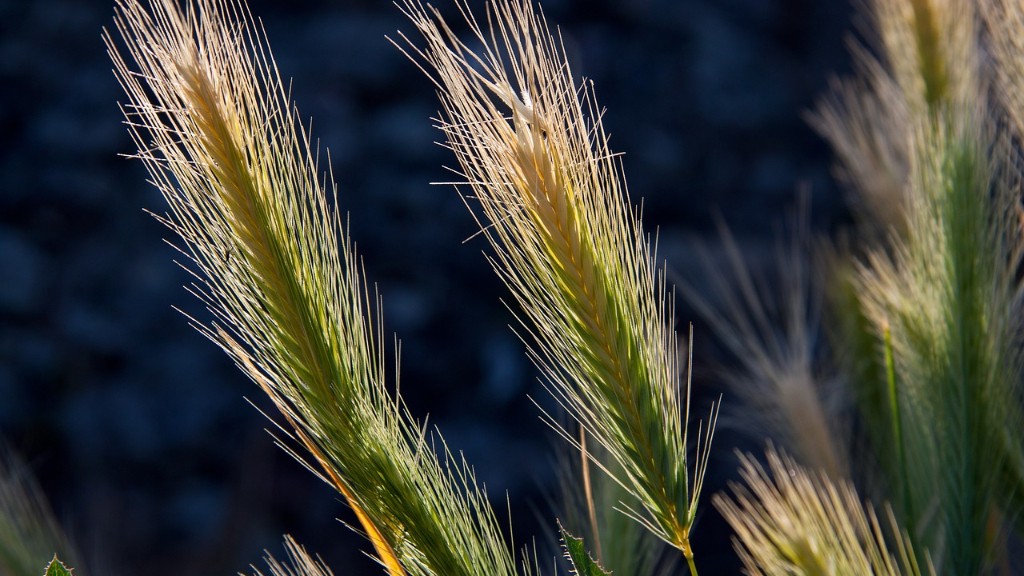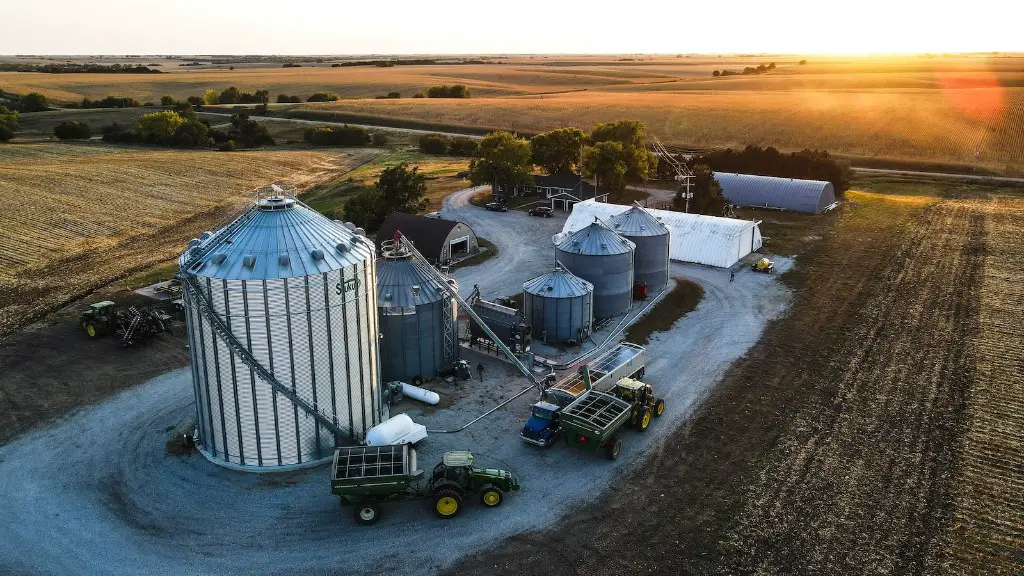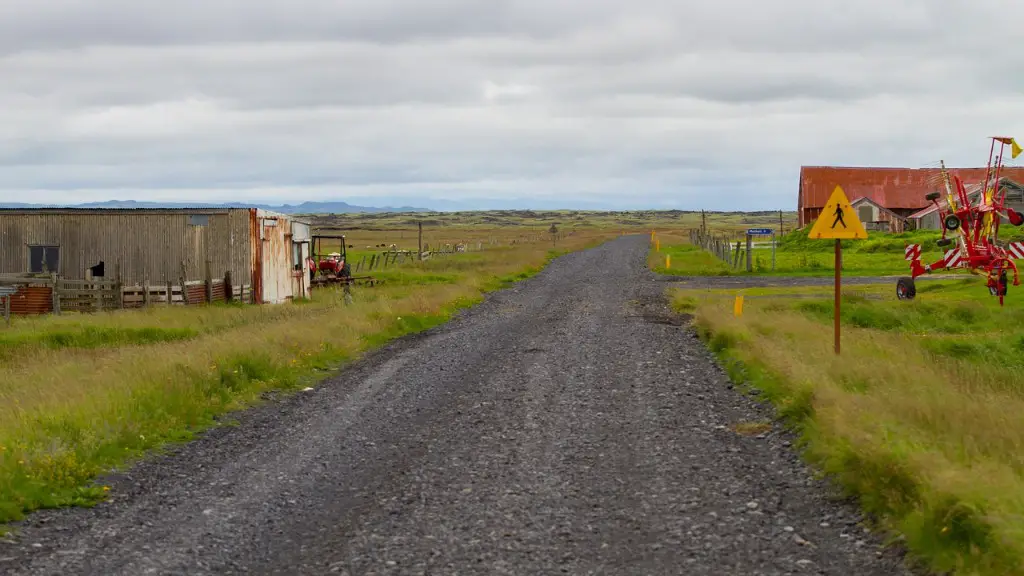Monoculture is the agricultural practice of producing or growing a single crop or plant species at a farm. The term can also refer to the process of genetic homogenization that occurs within a species of plant that is caused by the human activity of selective breeding. The disadvantage of monoculture is that it makes farms more vulnerable to pests and diseases. A single crop strain can be devastated by a disease or infestation, leading to widespread crop loss. The advantage of monoculture is that it allows farmers to grow a large quantity of a single crop, making it more efficient and easier to harvest.
An advantage of monoculture agriculture is that it can lead to higher yields due to the specialization of crops. A disadvantage of monoculture agriculture is that it can lead to greater vulnerability to pests and diseases.
What are the advantages and disadvantages of monoculture farming?
Monoculture farming is a type of farming where a single crop is grown in a field. This is in contrast to traditional farming where multiple crops are grown in the same field. Monoculture farming has several advantages and disadvantages.
Advantages of monoculture farming include specialized production, technological advances, high efficiency, greater yields of some produce, simpler to manage, and higher earnings. Pest problems and pesticide resistance are some of the disadvantages of monoculture farming.
A field planted with one single species is much easier to manage than a field with multiple species. All the preparation, inputs, crop maintenance, and harvesting are the same across a large area and less considerations need to be made about the needs of different species. This can result in significant cost savings for farmers. In addition, monocultures can provide higher yields than fields with multiple species.
What is one disadvantage of a monoculture
Monoculture farming is a type of farming where a single crop is grown in large quantities. This type of farming has some disadvantages, such as the high use of fertilizers, pests, loss of biodiversity, soil fertility and environmental pollution.
Monocropping is the cultivation of a single crop over a large area of land. This can lead to soil depletion and damage to the natural components of the soil.
What are the 3 disadvantages of monoculture?
Monoculture farming is the practice of growing a single crop or plant species on a piece of land. This type of farming can have negative impacts on biodiversity, soil fertility, and the increased use of fossil fuels and pesticides.
Biodiversity is important for the health of ecosystems. When monoculture farming dominates, it can lead to the loss of natural habitats and the decline of wildlife populations. Soil fertility can also suffer from monoculture farming. The constant planting of the same crop depletes the nutrients in the soil, which can lead to lower yields. The increased use of fossil fuels and pesticides is another negative impact of monoculture farming. These inputs are necessary to maintain large, single-crop farms, but they can harm the environment.
Monoculture farming has many advantages, including increased efficiency and higher yields. However, it can also lead to problems, such as increased vulnerability to pests and diseases.
What is one advantage and one disadvantage of a polyculture?
Polyculture is an ancient method of farming that is being rediscovered by modern farmers. Also known as intercropping, polyculture is the simultaneous cultivation of multiple diverse crops and animal species. Although this practice makes it more difficult to harvest a specific crop, it increases diversity, improves productivity, and creates a self-sustainable pest-management regime.
Polyculture systems are more resilient to pests and diseases because there are more species present, making it harder for any one pest or disease to take hold. This increased diversity also helps to improve soil health, as different plants take up different nutrients from the soil.
Polyculture is not a new idea, but it is one that is gaining popularity in the modern world as we look for more sustainable and efficient ways to farm.
raint runoff and plant diseases and pathogens will increase if the same soil is used for a single crop. Conventional monoculture setting are not good for the soil because the moisture will be unstable.
What is the problem of monoculture
While monocropping can have some benefits such as easier management and increased efficiency, it can also lead to problems such as increased disease pressure and reduced soil nutrients. Monocropping can also make farms more vulnerable to pests and weather changes. To create a more sustainable and resilient farm, consider diversifying your crop rotation to include a variety of different species.
Monoculture is the agricultural practice of producing one crop, plant, or livestock species, variety, or breed in a field or pasture. While a monoculture that relies on one species can be more resilient to pests and diseases, it is also more vulnerable because if the crop fails, the farmer has no backup. Additionally, monoculture destroys biodiversity and the natural ecosystems that support the crop.
What are the advantages of monoculture and polyculture?
There are a few reasons for why monoculture crops are easier to manage than polyculture ones. First, monoculture generally demands less efforts, knowledge, and resources than cultivating various sorts of plants. Second, because monoculture involves growing only one kind of crop, it is often easier to control pests and disease. Finally, monoculture crops are typically more uniform in appearance and thus easier to harvest.
While polyculture has many benefits, the main drawback is the number of control challenges one has over the crops. As opposed to a single plot where one species of the crop would grow, polyculture involves a plot whereby several species of crops are grown. This can make it difficult to control pests and diseases, as well as to ensure that all of the crops are getting the nutrients they need.
What is better monoculture or polyculture
While large-scale monoculture farming may offer some benefits in terms of efficiency and output, it can also be detrimental to the environment and the quality of the food produced. In contrast, polyculture farming offers a sustainable way to grow a variety of different foods on the same piece of land, often on a much smaller scale. This type of farming is not only better for the environment, but also results in higher quality food.
Monoculture farming can have a number of negative effects on the environment. One of the most significant problems is the damage that can be done to soil quality. Monoculture farms tend to rely heavily on fertilizers and pesticides, which can lead to soil depletion and contaminated water supplies. Additionally, monoculture farms are often much more vulnerable to pests and diseases, which can lead to increased use of pesticides and herbicides.
Why is monoculture bad for farming and the environment?
A monoculture is an agricultural system where a single crop is grown over a large area. This can lead to a more vulnerable soil-vegetation-atmosphere system for a number of reasons.
First, without varied leaves, barks, and roots, the system is less able to withstand fires. Second, a lack of diversity makes the system more susceptible to pests and diseases. Third, without variety, the system is less able to withstand extreme weather events.
In order to create a more resilient system, it is important to diversify the types of plants grown in an agricultural system. This will create a more complex system that is better able to withstand various shocks.
There are a number of terms used to describe areas, children, and adults who are living in poverty or who are otherwise disadvantaged. These include disadvantaged area, disadvantaged child, disadvantaged pupil, political correctness, poverty, destitute, disabled, social exclusion, and social vulnerability.
Each of these terms has its own unique meaning, but they all ultimately refer to groups of people who are at a disadvantage in society. Disadvantaged areas are typically characterized by high levels of poverty, crime, and unemployment. Disadvantaged children are those who come from low-income families or who have special needs that make it difficult for them to succeed in school. Disadvantaged pupils are those who attending schools in disadvantaged areas.
Political correctness refers to the idea that people should be treated equally regardless of their race, gender, or socioeconomic status. This term is often used in contexts where there is a debate about whether or not to give preferential treatment to certain groups of people.
Poverty is a state of being without the basic necessities of life, such as food, shelter, and clothing. Destitute is a term used to describe someone who is in a state of extreme poverty. Disabled refers to someone who has a physical or mental impairment that prevents them from participating in
Final Words
The advantage of monoculture agriculture is that it is efficient and allows for large-scale production. The disadvantage is that it can lead to environmental problems and may be less resilient to pests and diseases.
One advantage of monoculture agriculture is that it allows farmers to grow large quantities of a single crop, which can be sold for a high profit. A disadvantage of monoculture agriculture is that it increases the farmers’ reliance on a single crop, which makes them more vulnerable to crop failures.




